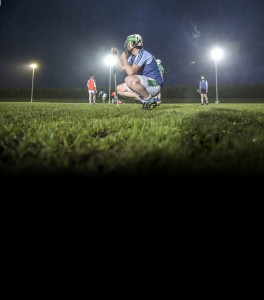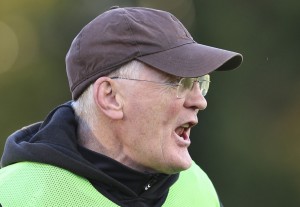
GAA Director of Games Research and Development Pat Daly has questioned the leave-’em-puking approach to training.
A loser’s dressing room, and there was no shortage of them during my career, as is the case for the majority of players.
The post mortem in the wake of the defeat, especially in a major game, was often desultory. In the immediate disappointment of failure no one was particularly keen to go into any great analysis as to why the day hadn’t gone well.
But still there had to be some excuse or reason offered.
The first excuse is to blame somebody else and the referee, of course, often got a bit of a hammering, no surprise there.
Still it couldn’t all be put down to that gentleman’s performance, there had to be some other factor at play.
And thus nine times out of ten, a suitable interval after the defeat had been digested, someone would parrot, “Yez weren’t fit enough!”
So there you had it, it was all down to fitness. Ability, skill etc. didn’t come into the reckoning.
Even if the defeat was by a single point, a single kick of the ball, it was the lack of fitness that was the root cause.
If you had been fit enough you would have won. Simple, straightforward assessment and the message was clear, there would have to be an intensified training regime from now on.
Rather surprisingly when the game had resulted in a victory even by a single point, fitness was never mentioned. The win had been achieved by ability, skill and so on. Fitness just didn’t come into it.
All of which brings me to this week’s topic.
Over the past few months a number of GAA pundits have been commenting on the obsession with physical fitness.
The Association’s Games Development officer Pat Daly made the caustic comment that, “I still think there is a cultural thing within the GAA that unless players are falling over with exhaustion or unless they are getting sick at the end of a training session they’re not training hard enough.”
It has also been noted that at inter-county level especially there are some ridiculous statistics regarding the ratio of training sessions to the actual number of games played.
Ten to fifteen training sessions per competitive game is a ratio that wouldn’t be an exaggeration.
And if one considers that emphasis in most training sessions is on physical rather than technical work the situation becomes even more risible.
The situation for talented underage players is even worse. They are at the beck and call of three or four different team managements all demanding that they give full commitment to their particular training regime. Little wonder that burn out is increasingly becoming a serious issue.
It has always been my contention that more thought and less sweat should be the order of the day as far as training programmes were concerned.
We could rehearse typical game scenarios drilling players on avoiding the most elementary blunders.
Time and again in games we see scores coughed up in the most frustrating of circumstances.
Take this as an example.
A forward out on the wing or in the corner who has won the race for possession stoops for possession. He has a lot of things to get right before he actually gets in a shot on goal. Take possession, turn, elude a marking defender, not over carry and then shoot under pressure.
Does he have to do any of this?
Of course not.
Instead he has been awarded a free for a push in the back, the gift of a defender who just help themselves.
This might well happen two or three times in a game. Scores just coughed up, nights of slogging around a training pitch counting for nothing really.
Or even more criminal the sheer lack of basic skills, skills which could have been better honed if adequate time had been allocated to work with the ball.
I’m not saying there shouldn’t be substantial time allocated to physical preparation. Of course a player has to be in more than decent shape if he is to give of his best.
But there has to be a balance, and at the end of the day we all would like to think that it is skill that is the crucial factor in deciding the outcome of any game.











